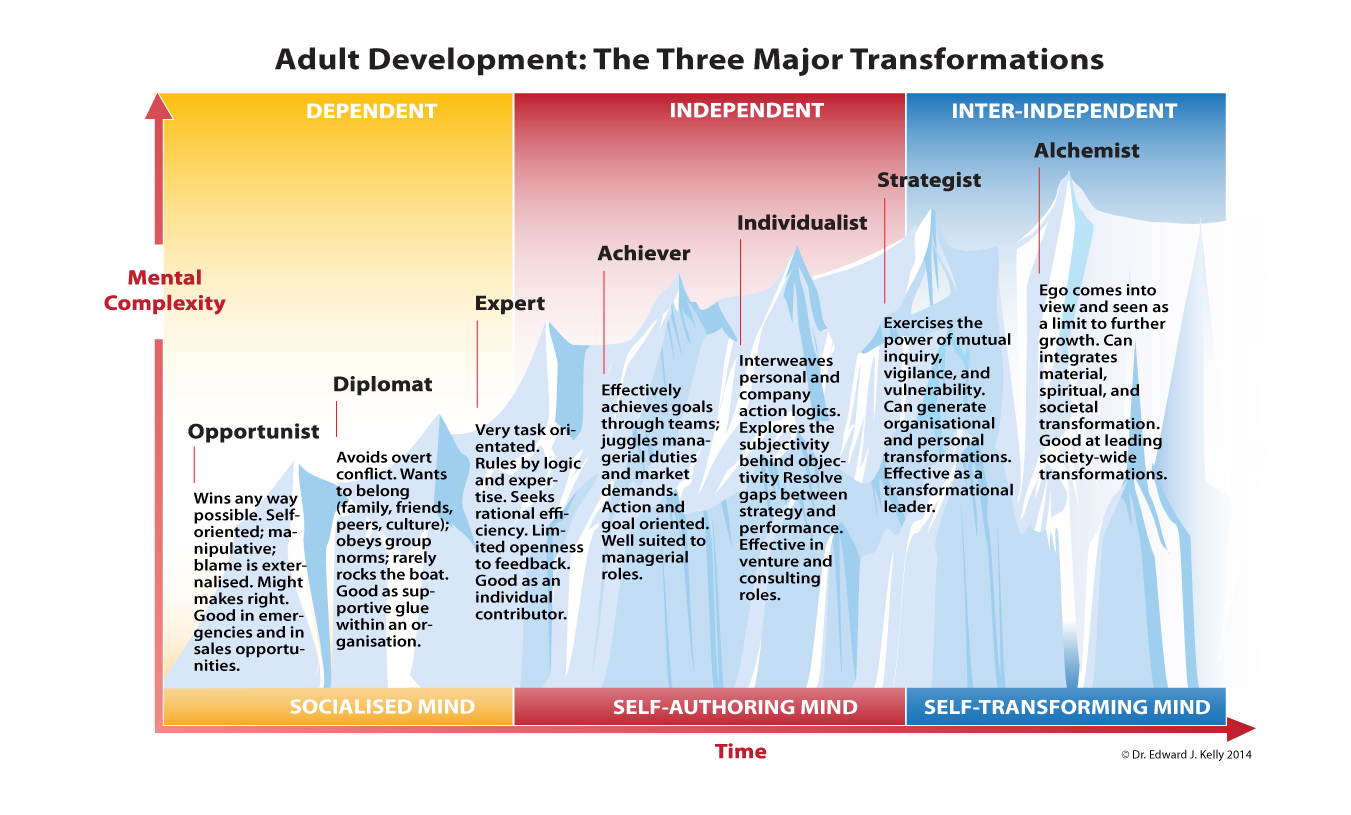Summary: Andragogy refers to a theory of adult learning that details some of the ways in which adults learn differently than ren. For example, adults
Are you interested in Adult Learning Theory? Check the The Adult Learning Theory – Andragogy – of Malcolm Knowles to find out more.
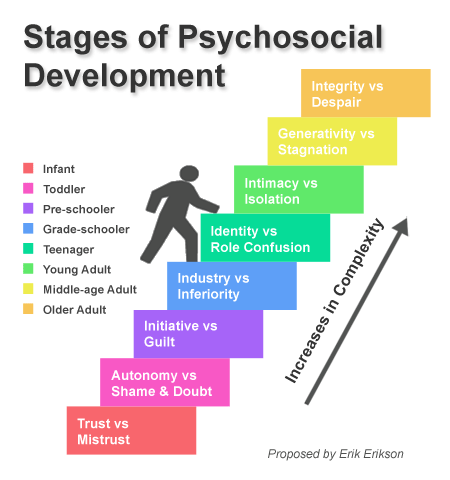
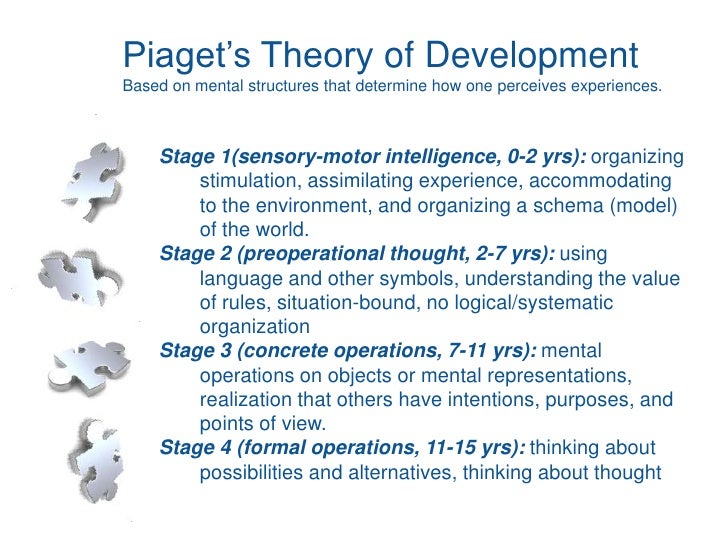

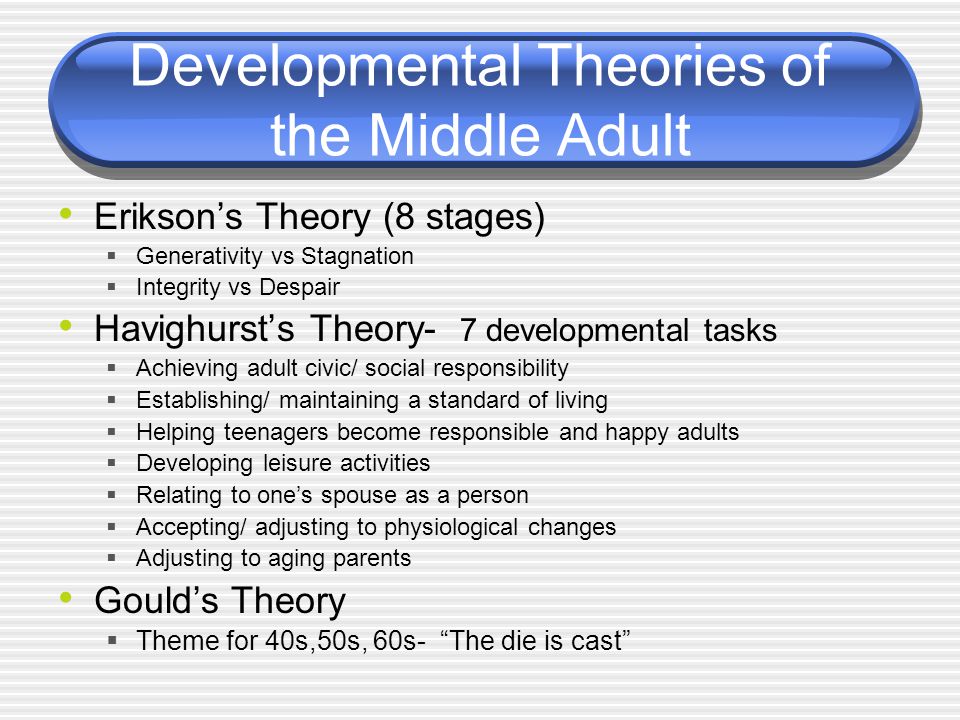


Developmental psychology is the scientific study of how and why human beings change over the course of their life. Originally concerned with infants and ren, the field has expanded to include cence, adult development, aging, and the entire lifespan.
Introduction to attachment theory in developmental psychology, including Bowlby and Ainsworth’s contributions, evaluation and criticisms of attachment theory.

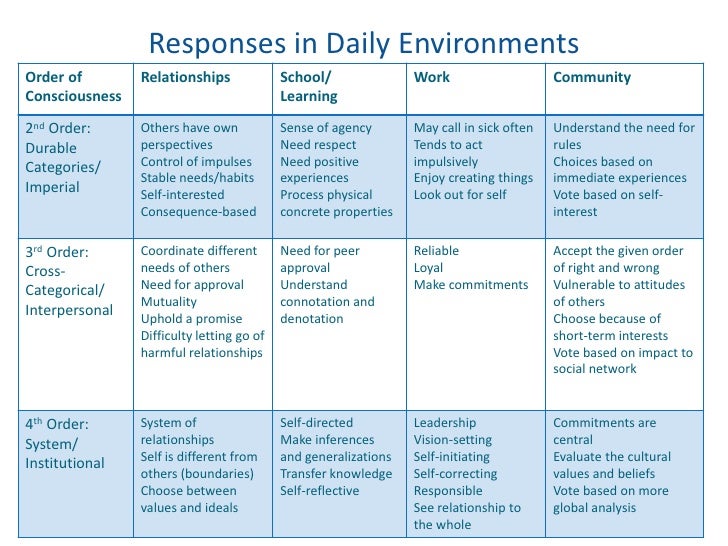
Developmental Theory – Cognitive And Information Processing, Evolutionary Approach, Vygotskian Theory – HISTORICAL OVERVIEW
Theory. Erikson is a Freudian ego-psychologist.This means that he accepts Freud’s ideas as basically correct, including the more debatable ideas such as the Oedipal complex, and accepts as well the ideas about the ego that were added by other Freudian loyalists such as Heinz Hartmann and, of, course, Anna Freud.
The thrifty phenotype hypothesis says that reduced fetal growth is strongly associated with a number of chronic conditions later in life. This increased susceptibility results from adaptations made by the fetus in an environment limited in its supply of nutrients.
In order to learn through life, it’s helpful to understand something about how you learn. The following backgrounder will introduce you to the most significant things we …
What is development? What is a developmental milestone? What are the typical milestones or skills that ren learn at different ages?
Each of us has a “Way of Knowing” that filters our experience of ourselves, others, and our relationships. This chart offers a framework based on Robert Kegan’s constructive-developmental theory to understand how each of us, depending on our way of knowing, develops during adulthood. It also

